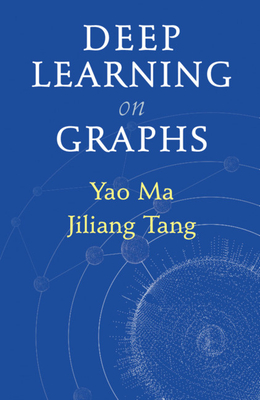Introduction to Deep Learning for Healthcare
暫譯: 醫療領域深度學習入門
Xiao, Cao, Sun, Jimeng
- 出版商: Springer
- 出版日期: 2021-11-12
- 售價: $2,800
- 貴賓價: 9.5 折 $2,660
- 語言: 英文
- 頁數: 246
- 裝訂: Hardcover - also called cloth, retail trade, or trade
- ISBN: 3030821838
- ISBN-13: 9783030821838
-
相關分類:
DeepLearning
海外代購書籍(需單獨結帳)
買這商品的人也買了...
-
 $1,176Database Management Systems, 3/e (IE-Paperback)
$1,176Database Management Systems, 3/e (IE-Paperback) -
 Pattern Recognition, 4/e (Hardcover)
Pattern Recognition, 4/e (Hardcover)$4,280$4,066 -
 Networks: An Introduction (Hardcover)
Networks: An Introduction (Hardcover)$1,780$1,744 -
 Learning From Data (Hardcover)
Learning From Data (Hardcover)$1,200$1,140 -
 Academic Writing for Graduate Students, 3/e : Essential Tasks and Skills (Paperback)
Academic Writing for Graduate Students, 3/e : Essential Tasks and Skills (Paperback)$1,420$1,349 -
 $1,615Cracking the Coding Interview : 189 Programming Questions and Solutions, 6/e (Paperback)
$1,615Cracking the Coding Interview : 189 Programming Questions and Solutions, 6/e (Paperback) -
 Programming in Scala : Updated for Scala 2.12, 3/e
Programming in Scala : Updated for Scala 2.12, 3/e$2,470$2,347 -
 $1,617Deep Learning (Hardcover)
$1,617Deep Learning (Hardcover) -
 iOS Programming: The Big Nerd Ranch Guide, 6/e
iOS Programming: The Big Nerd Ranch Guide, 6/e$2,050$1,948 -
 $948Scala for the Impatient,2/e
$948Scala for the Impatient,2/e -
 Computer Systems: A Programmer's Perspective, 3/e (IE-Paperback)
Computer Systems: A Programmer's Perspective, 3/e (IE-Paperback)$2,980$2,831 -
 Data Mining for Business Analytics: Concepts, Techniques, and Applications in R (Hardcover)
Data Mining for Business Analytics: Concepts, Techniques, and Applications in R (Hardcover)$3,960$3,762 -
 Clean Architecture: A Craftsman's Guide to Software Structure and Design (Paperback)
Clean Architecture: A Craftsman's Guide to Software Structure and Design (Paperback)$1,980$1,881 -
 Deep Learning with Python (Paperback)
Deep Learning with Python (Paperback)$1,900$1,805 -
 Beyond Bullet Points: Using PowerPoint to tell a compelling story that gets results, 4/e (Paperback)
Beyond Bullet Points: Using PowerPoint to tell a compelling story that gets results, 4/e (Paperback)$1,150$1,093 -
 $2,640Natural Language Processing with PyTorch
$2,640Natural Language Processing with PyTorch -
 Reinforcement Learning: An Introduction, 2/e (Hardcover)
Reinforcement Learning: An Introduction, 2/e (Hardcover)$1,750$1,715 -
 Generative Adversarial Networks Projects: Build next-generation generative models using TensorFlow and Keras
Generative Adversarial Networks Projects: Build next-generation generative models using TensorFlow and Keras$1,850$1,758 -
 Text Analytics with Python: A Practitioner's Guide to Natural Language Processing, 2/e
Text Analytics with Python: A Practitioner's Guide to Natural Language Processing, 2/e$1,490$1,416 -
 Introduction to Data Mining, 2/e (GE-Paperback)
Introduction to Data Mining, 2/e (GE-Paperback)$1,420$1,392 -
 Scientific Methods Used in Research and Writing
Scientific Methods Used in Research and Writing$2,580$2,451 -
 Deep Learning on Graphs
Deep Learning on Graphs$2,590$2,461 -
 Crafting Interpreters (Paperback)
Crafting Interpreters (Paperback)$2,230$2,119 -
 $2,112Designing Machine Learning Systems: An Iterative Process for Production-Ready Applications (Paperback)
$2,112Designing Machine Learning Systems: An Iterative Process for Production-Ready Applications (Paperback) -
 The Little Learner: A Straight Line to Deep Learning (Paperback)
The Little Learner: A Straight Line to Deep Learning (Paperback)$1,980$1,881
商品描述
This textbook presents deep learning models and their healthcare applications. It focuses on rich health data and deep learning models that can effectively model health data. Healthcare data: Among all healthcare technologies, electronic health records (EHRs) had vast adoption and a significant impact on healthcare delivery in recent years. One crucial benefit of EHRs is to capture all the patient encounters with rich multi-modality data. Healthcare data include both structured and unstructured information. Structured data include various medical codes for diagnoses and procedures, lab results, and medication information. Unstructured data contain 1) clinical notes as text, 2) medical imaging data such as X-rays, echocardiogram, and magnetic resonance imaging (MRI), and 3) time-series data such as the electrocardiogram (ECG) and electroencephalogram (EEG). Beyond the data collected during clinical visits, patient self-generated/reported data start to grow thanks to wearable sensors' increasing use. The authors present deep learning case studies on all data described.
Deep learning models: Neural network models are a class of machine learning methods with a long history. Deep learning models are neural networks of many layers, which can extract multiple levels of features from raw data. Deep learning applied to healthcare is a natural and promising direction with many initial successes. The authors cover deep neural networks, convolutional neural networks, recurrent neural networks, embedding methods, autoencoders, attention models, graph neural networks, memory networks, and generative models. It's presented with concrete healthcare case studies such as clinical predictive modeling, readmission prediction, phenotyping, x-ray classification, ECG diagnosis, sleep monitoring, automatic diagnosis coding from clinical notes, automatic deidentification, medication recommendation, drug discovery (drug property prediction and molecule generation), and clinical trial matching.
This textbook targets graduate-level students focused on deep learning methods and their healthcare applications. It can be used for the concepts of deep learning and its applications as well. Researchers working in this field will also find this book to be extremely useful and valuable for their research.
商品描述(中文翻譯)
這本教科書介紹了深度學習模型及其在醫療保健中的應用。它專注於豐富的健康數據和能有效建模健康數據的深度學習模型。醫療保健數據:在所有醫療保健技術中,電子健康紀錄(EHRs)在近年來得到了廣泛的採用,並對醫療服務產生了重大影響。EHRs的一個關鍵好處是能夠捕捉所有患者的就診記錄,並提供豐富的多模態數據。醫療保健數據包括結構化和非結構化信息。結構化數據包括各種診斷和程序的醫療代碼、實驗室結果和藥物信息。非結構化數據包含1)作為文本的臨床筆記,2)醫學影像數據,如X光、超聲心動圖和磁共振成像(MRI),以及3)時間序列數據,如心電圖(ECG)和腦電圖(EEG)。除了在臨床就診期間收集的數據外,隨著可穿戴傳感器的日益使用,患者自我生成/報告的數據也開始增長。作者針對上述所有數據展示了深度學習的案例研究。
深度學習模型:神經網絡模型是一類具有悠久歷史的機器學習方法。深度學習模型是由多層組成的神經網絡,能夠從原始數據中提取多層次的特徵。將深度學習應用於醫療保健是一個自然且前景廣闊的方向,並且已經取得了許多初步成功。作者涵蓋了深度神經網絡、卷積神經網絡、遞歸神經網絡、嵌入方法、自編碼器、注意力模型、圖神經網絡、記憶網絡和生成模型。這些內容通過具體的醫療案例研究進行展示,例如臨床預測建模、再入院預測、表型分析、X光分類、ECG診斷、睡眠監測、從臨床筆記自動診斷編碼、自動去識別化、藥物推薦、藥物發現(藥物性質預測和分子生成)以及臨床試驗匹配。
這本教科書的目標讀者是專注於深度學習方法及其醫療應用的研究生。它也可以用於深度學習概念及其應用的學習。從事該領域研究的研究人員也會發現這本書對他們的研究極具幫助和價值。
作者簡介
作者簡介(中文翻譯)
曹丹妮卡博士是Amplitude的資深總監,負責數據科學和機器學習。在此之前,她是IQVIA分析卓越中心的機器學習總監。在IQVIA之前,她是IBM Research的研究人員。她的工作專注於開發機器學習和深度學習模型,以解決現實世界中的醫療挑戰。她在華盛頓大學(University of Washington, Seattle)獲得博士學位。孫吉盟博士是伊利諾伊大學香檳分校計算機科學系及Carle醫學院的健康創新教授。他的研究專注於醫療保健的人工智慧(AI),包括用於藥物發現的深度學習、臨床試驗優化、計算表型學、臨床預測建模、治療建議和健康監測。他在香港科技大學獲得計算機科學的學士和碩士學位,並在卡內基梅隆大學獲得計算機科學的博士學位。















